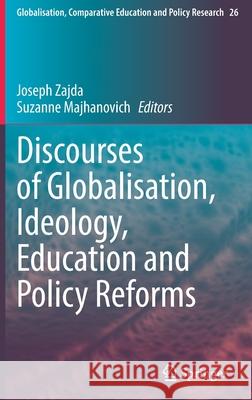Discourses of Globalisation, Ideology, Education and Policy Reforms » książka
topmenu
Discourses of Globalisation, Ideology, Education and Policy Reforms
ISBN-13: 9783030715823 / Angielski / Twarda / 2022 / 218 str.
Kategorie:
Kategorie BISAC:
Wydawca:
Springer
Seria wydawnicza:
Język:
Angielski
ISBN-13:
9783030715823
Rok wydania:
2022
Wydanie:
2021
Numer serii:
000360194
Ilość stron:
218
Waga:
0.48 kg
Wymiary:
23.39 x 15.6 x 1.42
Oprawa:
Twarda
Wolumenów:
01
Dodatkowe informacje:
Wydanie ilustrowane











